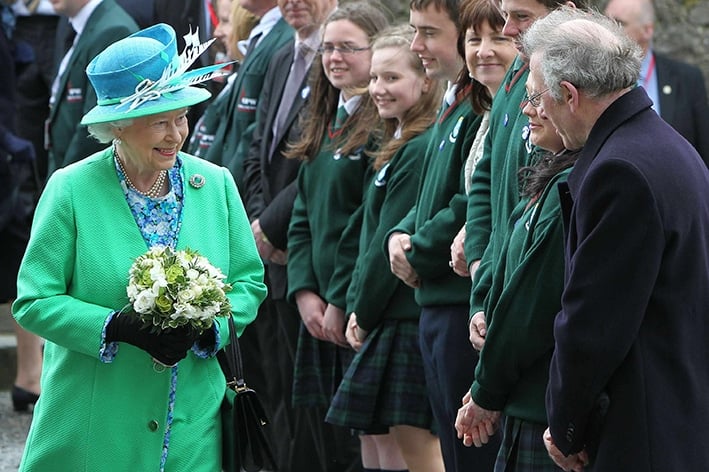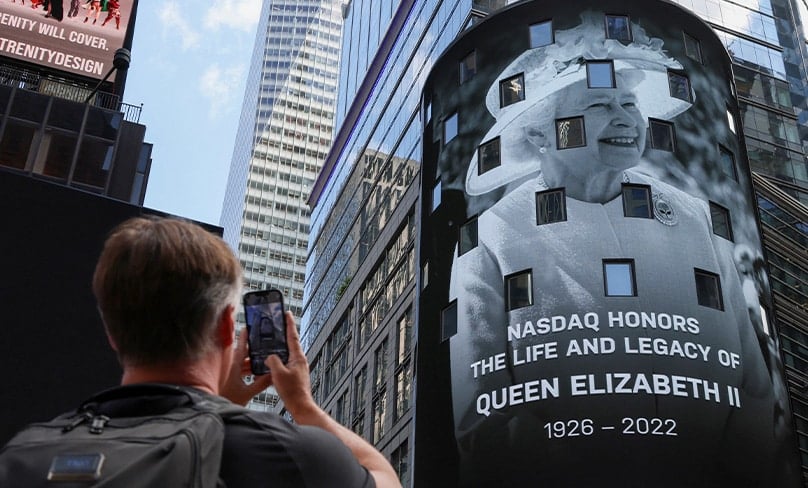
The outpouring of popular feeling on Queen Elizabeth II’s death has highlighted certain truths about present-day political life, not only in the UK but also Australia.
It has brought into focus the role of an ancient institution, the monarchy, and shed light on the purpose it serves in a 21st century democracy.
Until the Queen’s death, it might have been thought the monarchy was no longer significant in the popular imagination. Surely it had outlived its usefulness, and was just a ceremonial relic from earlier times. But the reaction to Elizabeth II’s death would suggest it still holds a valued place in people’s minds and hearts.
How could it register such an impact? Apart from its ancient character, it has another feature at odds with contemporary culture – and that is, its religious origins. In the history of the West, it is a Christian institution, expressed in Christian imagery – of Christ reigning in society as Christ the King, and of Our Lady, the Mother of God, as the Queen of Heaven.
“Firstly, she was a reassuring symbol of the stability and continuity of society. She represented something solid and consistent, serving as a focus of unity in the midst of political discord and cultural upheaval.”
The Proclamation that made King Charles III, shortly after his mother’s death, celebrated the Christian foundation of the English monarchy. It testified to the religious nature of the institution. The new King will soon be crowned in a ceremony of Christian coronation, sanctified by tradition and resounding with sacred overtones and transcendental messages.
Three truths stand out from the Queen’s extraordinarily long reign.
Firstly, she was a reassuring symbol of the stability and continuity of society. She represented something solid and consistent, serving as a focus of unity in the midst of political discord and cultural upheaval.
In times of crisis, she stood for patriotism, which is a loyalty born of love, more than nationalism, which originates in pride.
Secondly, Elizabeth II embodied certain qualities, such as dignity and decency – and even a mischievous sense of humour so that she avoided taking herself too seriously! These have declined in public life but, as TV interviews with various people revealed following the Queen’s death, the desire is strong that they should come back.

Thirdly, she exemplified the difference between authority and power. This is a crucial distinction, often lost in the daily turmoil of politics.
Authority, as G.K. Chesterton pointed out, “simply means right; and nothing is authoritative except what somebody has a right to do, and therefore is right in doing.” By contrast, “he cannot have a shred of authority if he merely has the power to do it and not the right to do it. . . To abuse authority is to attack authority.”
A monarch, by using the authority defined in a formal constitution, can bring integrity to political decision-making and action. The institution at once elevates and restrains. It lifts politics to a new level – so that it becomes a vocation of service and devoted duty (notably lived out by the late Queen during her reign). At the same time, it limits politics by setting it in a universe of higher beliefs and ideals.
The popular appeal of the monarchy draws on both these strengths. Power is resented when used for self-promotion rather than a worthy cause, and ordinary people are attracted to an institution like the monarchy that seeks to represent and advance the common good.
“It showed that the best of human qualities, such as dignity and courtesy and extending the hand of friendship in the midst of conflict, can still find faithful expression in the 21st century.”
Yet they sense that the monarchy is about more than politics. It stands for higher convictions and values. It prevents a society from making politics the supreme pursuit and preoccupation – a role it can never fully carry out, projecting promises it can never fulfil.
Amid the tumult of contemporary politics, the Queen’s death may prompt a fresh look at the value of the monarchy. It has now become, unmistakably, a counter-cultural institution. For this reason its popular standing may increase as we search for better ways of distributing and authorising the use of power in society.
Elizabeth II’s reign made clear the role of the monarchy as a symbol of social unity, and thus a balance to the adversarial conduct of parliamentary politics. It showed that the best of human qualities, such as dignity and courtesy and extending the hand of friendship in the midst of conflict, can still find faithful expression in the 21st century.
Finally, the Queen’s remarkable reign has brought home two vital truths.
As a political institution with popular authority, a monarchy can effectively serve the power of the State by standing apart from it. As a religious institution, it can still have social and political influence in an irreligious age.
Related Articles:
